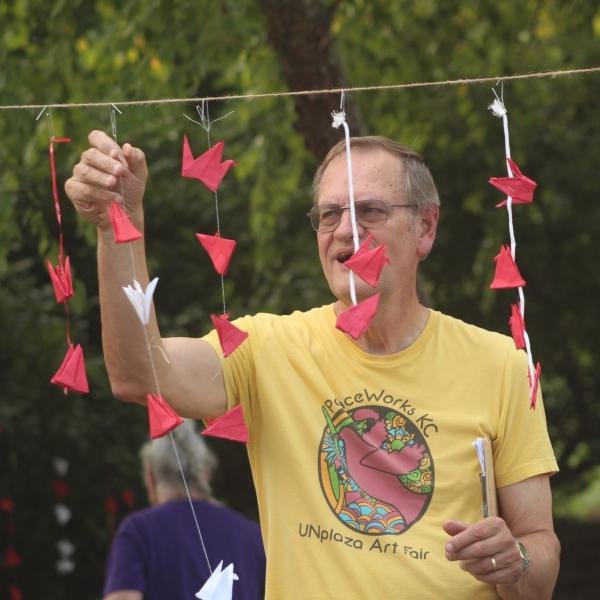Note: Mary Hladky, vice chair of the PeaceWorks-KC Board, gave this talk May 29 in Jefferson City, MO, during a Poor People’s Campaign rally. Soon after Hladky gave this critique, she and 16 others blocked a street near the Capitol, were arrested, and were released.

I am Mary Hladky. My son, Ryan, was an Army Infantry Officer. During his deployment in Afghanistan, he and the troops experienced the highest rates of death and injury for American soldiers during this still ongoing war.
Today, I want to talk to you about the war economy and the incalculable harm this obsession does to all Americans, especially soldiers.
The production of war and its weapons drains the treasury of money. The Costs of War Project at Brown University finds that the USA’s wars over the past 16 years have cost $5.6 trillion. This spending is justified for national security. There is little left, it seems, for the welfare of the people. Investing in war and its weapons prioritizes killing over the right of health and health care of the people; the burning of crops over the justice of good food for all; the destruction of dwellings more than the right of housing for all; war exploits, extracts, despoils, and ruins the land and water as priorities over stewarding and protecting the earth. The current Congress and administration seem poised to continue making these choices, prepared to cut, slash, and eliminate vital social welfare programs while increasing the budget of the military. It is not to the care of the people that they dedicate their work, but to people’s harm, here and overseas.
These same officials and their ilk defend these massive expenses (and accompanying program cuts) as part of “supporting the troops.” We know, however, that really supporting our troops means bringing them home and taking care of them when they return. That isn’t the case at present. Not enough, anyway, for:
How are we supporting the troops when many military families need public assistance such as food stamps to make ends meet, while defense contractors rake in record profits?
How are we supporting the troops when many military bases are “superfund” sites full of toxic chemicals endangering the health of military families?
How are we supporting our troops when 20 veterans, from all wars, die by suicide every day?
Today I want to talk to you about moral injury, one of the invisible wounds of war – a major factor in the high rate of suicide among our military men and women. Many have experienced moral injury – a violation of a person’s moral values, their core beliefs. There are 3 million veterans of the wars in Iraq and Afghanistan. These soldiers have seen more combat than veterans of any other wars. They have borne witness to the sorrow, horror, and betrayal of these wars. Peace, stability, and liberation have not come, but, instead, increased chaos, terror, and exploitation. This witness, unaddressed, unsupported, engenders shame, guilt, and torturous remorse; these feelings cascade and gather unto death by suicide. This incidence is epidemic among veterans of the wars in Iraq and Afghanistan.
The nobility in which politicos and generals drape war-making has wrapped our sons and daughters into its cloth, and blinded us to the utterly destructive realities of war. That star-spangled banner has become an awful burial shroud for so many military families. And I can but allude in this moment to how that flag has become a symbol of death, to the torrent of damage done to citizens of Iraq and Afghanistan.
Today, here and across the country, and all over the world, our voices declare the work for a more peaceful world, the hope of a movement. May we all come to realize that true security is not measured by the size of our military, but the welfare of our people.

